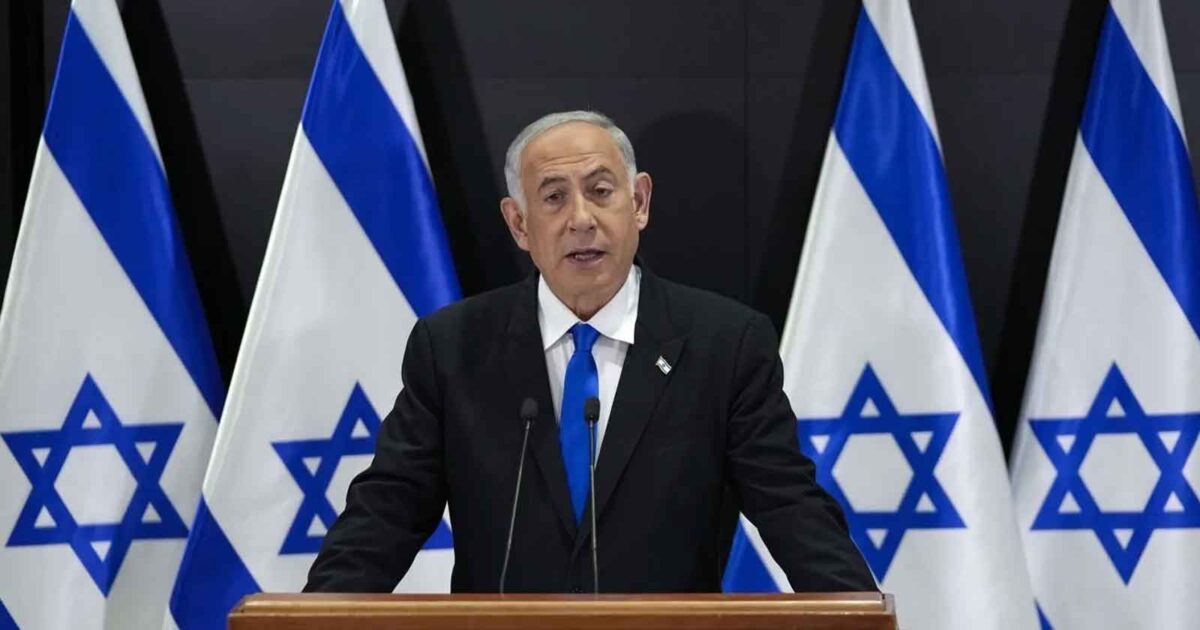
Israel has called off scheduled meetings in Washington after the United States chose not to veto a UN Security Council resolution urging a ceasefire in Gaza. This resolution, which also demanded the release of all hostages, comes after several unsuccessful attempts to pass similar measures following the attacks on October 7.
Israeli Prime Minister Benjamin Netanyahu criticized the United States for what he described as abandoning its previous stance. This disagreement arises amid urgent calls to prevent a famine in Gaza.
Throughout the conflict, the United States has utilized its veto power to block three Security Council resolutions seeking temporary halts in the fighting or a ceasefire. Two additional resolutions were vetoed by both Russia and China.
On Monday, the United States abstained from voting on a resolution calling for an “immediate” ceasefire for the remainder of Ramadan, which spans two weeks, along with the “immediate and unconditional release of all hostages.” With 14 other council members, including the UK, voting in favor, the resolution passed.
Following the vote, Netanyahu objected, stating that the resolution failed to condition the ceasefire on the release of hostages, a point both the US and Israel had advocated for. Israel believes that Hamas and its allies still hold approximately 130 hostages in Gaza, including 33 presumed deceased.
Netanyahu’s office released a statement saying that the resolution provides Hamas with hope that international pressure will compel Israel to accept a ceasefire without securing the release of hostages, thereby undermining both the war effort and efforts to free the hostages.
In response to the change in the US stance, Israel canceled a planned visit by its delegation to the US this week. Israeli and US officials were scheduled to discuss Israel’s planned offensive in the southern Gaza city of Rafah, where approximately 1.5 million Palestinians have sought refuge after fleeing the fighting elsewhere in Gaza.
US Secretary of State Antony Blinken publicly voiced opposition to a ground operation in Rafah, warning that it risks causing further civilian casualties and is not the appropriate strategy to defeat Hamas.
US National Security Council spokesman John Kirby expressed disappointment at Israel’s decision but reiterated the US view that a major ground offensive in Rafah would be a significant mistake. He confirmed that scheduled meetings between Israeli Defense Minister Yoav Gallant and US National Security Advisor Jake Sullivan would proceed as planned.
Israel’s opposition leader and former Prime Minister Yair Lapid criticized Netanyahu’s decision, labeling the episode as “unnecessary” and accusing Netanyahu of irresponsibility. Lapid emphasized the negative implications for Israel’s security and economy.
Monday’s resolution was passed amidst grave concern over the dire humanitarian situation in Gaza. Last week, Blinken warned of severe levels of acute food insecurity affecting the entire population of Gaza.
The UN World Food Programme cautioned that famine is expected to occur in Gaza’s two northern governorates by May unless the flow of aid into the territory is increased.
Following Monday’s vote, UN Secretary-General António Guterres stressed the importance of implementing the resolution, stating that failure to do so would be unforgivable.
Early Tuesday, the British government announced its first airdrop of food into Gaza conducted by the Royal Air Force. The drop included 10 tonnes of supplies, including water, rice, cooking oil, flour, canned goods, and baby formula. The British government reiterated its call for Israel to permit more aid to enter Gaza through its ports and to open additional land crossings into the territory.



